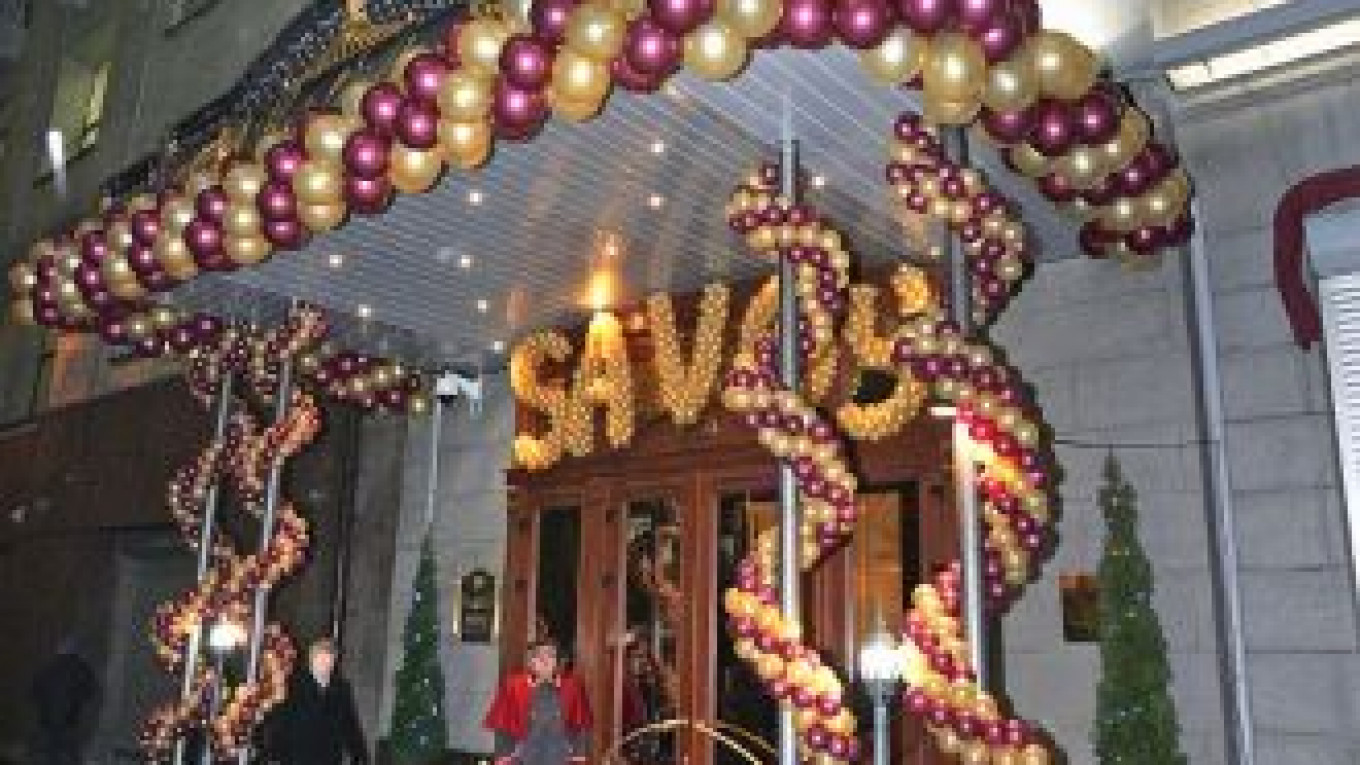The number of quality hotel rooms in Moscow is expected to grow 6 percent this year to 32,500, as several international hotel chains plan to put eight big projects into commission, a consulting company said Monday.
By while Moscow is gaining popularity as a tourist destination, the city authorities and analysts said its hotel rates remain below the average for other European capitals like Paris and London.
Among the hotels expected to be completed this year are the five-star Four Seasons Moscow — formerly Hotel Moskva — near the Kremlin and Kempinsky Hotel Nikolskaya, Novotel in Moskva-City, two Hilton hotels and Mercure Arbat in the four-star category, as well as Azimut and a hotel complex in Vnukovo Airport ranked three stars, Knight Frank said in a survey.
The new hotels are expected to add up to 1,884 new rooms to the city's capacity, bringing the total number to 32,500 rooms, the survey said.
Several international hotel giants, such as Hilton, InterContinental and Radisson, plan to expand their local presence, betting on Moscow becoming popular among foreign and domestic tourists.
Moscow is becoming an attractive destination for event tourism, as the city's hotels saw 100,000 guests including foreigners during the New Year's holidays — about 10 percent more than a year ago, Sergei Shpilko, head of City Hall's tourism and hotel industry committee, said earlier this month.
Growing demand among both domestic and foreign travelers resulted in the city outdoing European capitals like Paris and London by the size of hotel rates in November, according to a survey by hotel booking service Hotel.info.
The Germany-based company ranked Moscow No. 1 earlier this month on its list of European cities with the highest room rates.
The average rate in Moscow increased 8.35 percent in November compared with the same period in 2010 to reach 7,684 rubles per night ($245), followed by Oslo and London, according to Hotel.info.
The company polled guests booking rooms in hotels of all categories in European capitals with a population of 500,000 or more.
Moscow is a popular destination among domestic and foreign tourists and business travelers — just like London or New York, with high demand and cost of living pushing hotel prices up, Hotel.info said in e-mailed comments.
But Marina Smirnova, senior vice president at Jones Lang LaSalle Hotels, argued that the city's hotels are by far not the most expensive in Europe, with Paris being one of the undoubted leaders.
The room rates in three-star to luxury five-star hotels in Moscow averaged $195.80 per night in November, up from $176.20 per night in the same month in 2010, according to Jones Lang LaSalle's calculations.
The average rate in Paris reached $303.13 per night, while figures in Geneva and London stood at $297.60 and $222.24 per night, respectively.
"Paris boasts a higher quality of luxury hotels, and demand for Paris as a destination is higher than for Moscow," Smirnova said.
The average monthly load in Moscow is about 65 percent, while in Paris it exceeds 70 percent, she said by telephone.
City Hall's Shpilko said rankings by booking services don't reflect the real situation because they are usually based on the prices in the high season that lasts for three to four months, when business tourism in Moscow peaks.
"Moscow is really a leader in Europe by certain price categories at this time," Shpilko said, adding that these rates can't be considered typical.
Calculations by hotel-booking services usually don't take into account discounts provided by hotels and tariffs for corporate clients, which also decrease the rates, said Anna Shvetskova, an analyst with Knight Frank.
Moscow ranked fifth after Paris, London, Amsterdam and Rome by the average size of hotel rates last year, according to the company's survey.
Meanwhile, analysts expect growing demand to be one of the major drivers for hotel rates this year.
Dollar-denominated hotel prices are expected to increase about 5 percent this year, since hotels are likely to annul discounts for corporate clients amid growing demand, Smirnova said.
Demand is likely to increase due to growing business activity as the country's economy grows, and hotels might try to win back income after prices fell during the financial crisis in 2009 and 2010, she said.
A Message from The Moscow Times:
Dear readers,
We are facing unprecedented challenges. Russia's Prosecutor General's Office has designated The Moscow Times as an "undesirable" organization, criminalizing our work and putting our staff at risk of prosecution. This follows our earlier unjust labeling as a "foreign agent."
These actions are direct attempts to silence independent journalism in Russia. The authorities claim our work "discredits the decisions of the Russian leadership." We see things differently: we strive to provide accurate, unbiased reporting on Russia.
We, the journalists of The Moscow Times, refuse to be silenced. But to continue our work, we need your help.
Your support, no matter how small, makes a world of difference. If you can, please support us monthly starting from just $2. It's quick to set up, and every contribution makes a significant impact.
By supporting The Moscow Times, you're defending open, independent journalism in the face of repression. Thank you for standing with us.
Remind me later.






